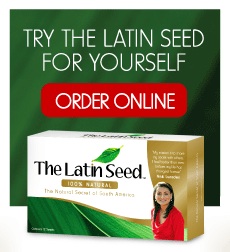Bogus food claims can be more than deceptive, they can be dangerous.
The Sydney Morning Herald reports that two top-selling diet products are the subject of an urgent recall after tests revealed they are highly toxic.
Marketers of The Latin Seed and Slim Seed, who say they have thousands of Australian customers, claim their products are derived from Aleurites moluccana,  commonly known as candlenut.
commonly known as candlenut.
But tests by the New South Wales Food Authority showed the seeds are actually from the poisonous yellow oleander.
The food watchdog has advised anyone taking the products to stop, and asked stockists to remove them from shelves. It has recommended that anyone who has concerns about consuming the seeds seek medical advice.
”The authority has received medical advice that yellow oleander contains cardiac glycosides which can be highly toxic to the heart,” a NSW Food Authority spokeswoman said.
”Consequently the authority has advised the distributors of these products that further sale should be discontinued and that the products be withdrawn from sale.”
Both products are widely advertised in Australia as a way to help people manage their weight by chopping up the seed and consuming it with hot water.
They have also come under fire from the authority for making misleading claims about their weight-loss properties. The watchdog has fined the companies selling the products and placed them on its ”name and shame” list.
NSW Minister for Primary Industries Steve Whan said the two companies marketing the products, Latin Seed and Slim Seed, were duping vulnerable consumers.
”Trying to lose weight is a serious and sensitive issue for many people and there is absolutely no room for companies or individuals who try to take advantage of this situation.”

 to ensure the integrity of grain and plant exports.
to ensure the integrity of grain and plant exports.
 commonly known as candlenut.
commonly known as candlenut.
 The study’s authors pointed out that although there was no direct link to the contaminated seeds, 137 people in England and Wales fell ill from six sub-types of salmonella found in the seeds during the six-month study. Many more ill people are likely to have not reported their symptoms to GPs. The Health Protection Agency and the local authority group Lacors, which conducted the study, warned food manufacturers and retailers to improve hygiene during harvesting and drying of seeds.
The study’s authors pointed out that although there was no direct link to the contaminated seeds, 137 people in England and Wales fell ill from six sub-types of salmonella found in the seeds during the six-month study. Many more ill people are likely to have not reported their symptoms to GPs. The Health Protection Agency and the local authority group Lacors, which conducted the study, warned food manufacturers and retailers to improve hygiene during harvesting and drying of seeds.